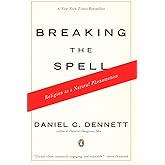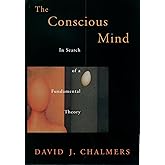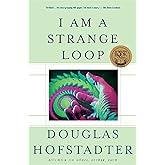
Amazon Prime Free Trial
FREE Delivery is available to Prime members. To join, select "Try Amazon Prime and start saving today with FREE Delivery" below the Add to Cart button and confirm your Prime free trial.
Amazon Prime members enjoy:- Cardmembers earn 5% Back at Amazon.com with a Prime Credit Card.
- Unlimited FREE Prime delivery
- Streaming of thousands of movies and TV shows with limited ads on Prime Video.
- A Kindle book to borrow for free each month - with no due dates
- Listen to over 2 million songs and hundreds of playlists
Important: Your credit card will NOT be charged when you start your free trial or if you cancel during the trial period. If you're happy with Amazon Prime, do nothing. At the end of the free trial, your membership will automatically upgrade to a monthly membership.
Buy new:
-35% $15.55$15.55
Ships from: Amazon.com Sold by: Amazon.com
Save with Used - Good
$9.98$9.98
Ships from: Amazon Sold by: ZBK Wholesale

Download the free Kindle app and start reading Kindle books instantly on your smartphone, tablet, or computer - no Kindle device required.
Read instantly on your browser with Kindle for Web.
Using your mobile phone camera - scan the code below and download the Kindle app.



 Audible sample
Audible sample Follow the author
OK
Consciousness Explained Paperback – October 20, 1992
Purchase options and add-ons
Consciousness Explained is a full-scale exploration of human consciousness. In this landmark book, Daniel Dennett refutes the traditional, commonsense theory of consciousness and presents a new model, based on a wealth of information from the fields of neuroscience, psychology, and artificial intelligence. Our current theories about conscious life — of people, animal, even robots — are transformed by the new perspectives found in this book.
"Dennett is a witty and gifted scientific raconteur, and the book is full of fascinating information about humans, animals, and machines. The result is highly digestible and a useful tour of the field." —Wall Street Journal
- Print length528 pages
- LanguageEnglish
- PublisherBack Bay Books
- Publication dateOctober 20, 1992
- Dimensions5.39 x 1.55 x 8.13 inches
- ISBN-100316180661
- ISBN-13978-0316180665
Book recommendations, author interviews, editors' picks, and more. Read it now.
Frequently bought together

Customers who viewed this item also viewed
Editorial Reviews
Amazon.com Review
Dennett's writing, while always serious, is never solemn; who would have thought that combining philosophy, psychology, and neuroscience could be such fun? Not every reader will be convinced that Dennett has succeeded in explaining consciousness; many will feel that his account fails to capture essential features of conscious experience. But none will want to deny that the attempt was well worth making. --Glenn Branch
Product details
- Publisher : Back Bay Books; 1st edition (October 20, 1992)
- Language : English
- Paperback : 528 pages
- ISBN-10 : 0316180661
- ISBN-13 : 978-0316180665
- Item Weight : 2.31 pounds
- Dimensions : 5.39 x 1.55 x 8.13 inches
- Best Sellers Rank: #44,225 in Books (See Top 100 in Books)
- #44 in Consciousness & Thought Philosophy
- #126 in Biology (Books)
- Customer Reviews:
About the author

Discover more of the author’s books, see similar authors, read book recommendations and more.
Customer reviews
Customer Reviews, including Product Star Ratings help customers to learn more about the product and decide whether it is the right product for them.
To calculate the overall star rating and percentage breakdown by star, we don’t use a simple average. Instead, our system considers things like how recent a review is and if the reviewer bought the item on Amazon. It also analyzed reviews to verify trustworthiness.
Learn more how customers reviews work on AmazonCustomers say
Customers find the book provides good value for money and is a rewarding read. However, opinions differ on the information quality, with some finding it insightful and stimulating, while others consider it overwritten and difficult to understand. Readers also mention that the book has clever words and is well-organized.
AI-generated from the text of customer reviews
Customers find the book worth reading. They mention it's overwritten, but well worth skimming. Many chapters are worth attention.
"...Even so, it’s well worth the effort to push through any sections that seem to require too much technical background in philosophy to Dennett’s..." Read more
"...All in all, a very difficult but rewarding read...." Read more
"This brilliant book by Dennett, one of the best philosophers of our age, will recreate the way you think about consciousness and build a strong..." Read more
"This is the best book that Daniel Dennett has written...." Read more
Customers have mixed opinions about the book's information quality. Some find it insightful and intellectually stimulating, explaining key features of consciousness well. Others feel it obfuscates rather than elucidating, lacking a satisfactory explanation for consciousness.
"...The book is a philosophical work, not psychological, and thus is better titled Consciousness Described in that Dennett examines human consciousness..." Read more
"...Nevertheless, I found much of what was discussed to be intellectually stimulating, and enlightening; these don't always need to go hand-in-hand...." Read more
"...that direct themselves to specialized language and explanations for Philosophers and Scientists. All in all, a very difficult but rewarding read...." Read more
"...the way you think about consciousness and build a strong foundation for a scientific, rational explanation of it, inspired by a perfect blend of..." Read more
Customers have different views on the book's readability. Some find it well-written and engaging with clever words and fascinating ideas. Others find it difficult to understand, overwritten, and complex for novice readers.
"..." and I could not agree more. This text is well written and put together in such a manner that the concepts are accessible even to those of us..." Read more
"...It's a difficult read, and at best I hope that my review can you (the hopefully interested reader) to see and possibly recognize a lot of the topics..." Read more
"...a perfect blend of neuroscience, computer science, psychology and linguistics...." Read more
"...Frankly, the first three hundred pages were tedious and redundant, but brute determination and several Turkish coffees sustained the reader through..." Read more
Reviews with images
Folded cover
Top reviews from the United States
There was a problem filtering reviews right now. Please try again later.
- Reviewed in the United States on August 7, 2021Many contemporary thinkers consider the nature of human consciousness to be the grandest mystery in the universe. What exactly is it and why do we humans have it? Isn’t it impossible to explain scientifically how we have the mental moment of willing that is at the heart of our free will? Or the mental moment that vividly captures our sensation of redness or our idea of a horse? Dan Dennett’s response to such rhetorical questions is No, we actually can scientifically investigate the nature of our consciousness, and his seminal Consciousness Explained (1991) is devoted, as far as possible at this stage of the science of cognitive psychology, to performing this task. The book is a philosophical work, not psychological, and thus is better titled Consciousness Described in that Dennett examines human consciousness without resorting to notions that the essence of our consciousness is an ineffable realm of private, indivisible mental experiences that intrinsically defies scientific analysis.
If you wish to read an earlier, more overtly technical work by one of today’s premier philosophers in the philosophy of mind and philosophy of science, then Consciousness Explained is just your cup of tea. But understand that at places it is something of a hard slog, e.g., his ‘Orwellian’ vs. ‘Stalinist’ versions of the origin of mental contents when discussing Libet’s famous reaction-time study (in the early chapter titled ‘Time and Experience’), or his comparison of the brain’s activity to a Universal Turing Machine (in the middle chapter titled ‘The Architecture of the Human Mind’), or his analysis of the psychological phenomena of ‘temporal anomalies’ and 'blindsight’ in other chapters, etc. Even so, it’s well worth the effort to push through any sections that seem to require too much technical background in philosophy to Dennett’s concluding chapter aptly titled ‘Consciousness Imagined.’ A helpful supplemental work that is much shorter and substantially less technical is Dennett's Kinds of Minds (1996), subtitled "Toward an Understanding of Consciousness," in the Science Masters Series, written for the science-minded general public.
- Reviewed in the United States on September 22, 2015As expected from a Dennett book, once you commence you better pack your intellectual suitcase and prepare for a journey. It's a difficult read, and at best I hope that my review can you (the hopefully interested reader) to see and possibly recognize a lot of the topics discussed as I simply lay them out.
In the book, the author sets out to, as he put it on page 16, explain consciousness and the various phenomena that compose to what we call consciousness by showing how they are physical effects in the brain. He claims that he will provide relevant scientific facts, series of stories, analogies, thought experiments, etc.
I'll briefly explain what kind of things where talked about in each PART (not chapter). Note this this is not inclusive because this book is very comprehensive and intricate. This is just a subjectively-motivated outline of [objective] topics I found interesting.
Prelude: How are hallucinations possible?
- Thought experiments like the "brain in a vat" and "a party game called psychoanalysis"
Part 1: Problems And Methods
- Elucidates the mystery behind consciousness
- The appeal to mystification in conjunction to it
- Dualism and it's unreliability
- Challenges of explaining such phenomena
- Introduction to phenomenology as well as heterophenomenology
-Methods and perspectives of phenomenology and heterophenomenology
- Shakey robot discussed
Part 2: An Empirical Theory of The Mind
- The inception of terms; The Multiple Drafts Theory and The Cartesian Theater
- Why the Cartesian Theater is the wrong view of consciousness
- Introduction to the Stalinesque (pre-experimental) and Orwellian(post-experimental) theories of conscious mending.
- Time and experience
- Evolution in relation to consciousness
- Memes
- Joycean Machine
Part 3: The Philosophical Problems of Consciousness
- Zombies
- Blindsight: The discussion of and understand of it
- Hide the thimble thought experiment
- Prosthetic vision
- DIALOGS WITH OTTO. The reason I capitalized this is because it is found throughout the book. Otto is a fiction character and contrarian that Dennett imputes as a way to propose and then dismantle many opposing claims (that the author made up, because of course in the process of writing the book and introducing new ideas there obviously weren't any critics to consider). This is a good author with a proposal at his best.
- Qualia (the intangible "stuff")
- Epiphenomenal Qualia (this was very interesting).
- The clever disqualification of both ^^
- The reality of selves and multiple personality disorder
- Imaging a conscious robot
- Analyzing Searle's Chinese Room experiment
- How to be moral with a materialistic view of consciousness, absent of mythology. Why we don't need myth to appreciate things like dead bodies of loved ones more than broken robots. Here I'm going to throw in a quote of his: "Myths about the sanctity of life, or of consciousness, cut both ways. They may be useful in erecting barriers (against euthanasia, against capital punishment, against abortion, against eating meat) to impress the unimaginative, but at the price of offensive hypocrisy or ridiculous self-deception among the more enlightened."
- The possibility of understanding consciousness
Dennett doesn't claim to solve the problem of consciousness, he rather concedes that his explanation is far from complete. Instead he wants to give us a better understanding, approach, and view of consciousness that distills the fear of many that claim that such a vision is impossible. I fall in the category of readers that didn't find it very difficult to imagine perceived consciousness as being an amalgamation of disparate, "non-conscious", comprehensive and complicated workings of the brain. Nevertheless, I found much of what was discussed to be intellectually stimulating, and enlightening; these don't always need to go hand-in-hand. Dennett's vigor and tone congenially complement the difficult read. 4.5/5.
Top reviews from other countries
 John D. S. CamfieldReviewed in Canada on November 3, 2024
John D. S. CamfieldReviewed in Canada on November 3, 20245.0 out of 5 stars At the least a stimulating book for those into 'consciousnessology'
An interesting book that actually doesn't explain consciousness but stimulates thinking about thinking - to my mind it is meta-metaphysics.
-
 Lazcano Martínez José AlfonsoReviewed in Mexico on September 3, 2021
Lazcano Martínez José AlfonsoReviewed in Mexico on September 3, 20215.0 out of 5 stars La relación entre filosofía y neurología, neurociencias.
Excelente texto. Es una fortuna encontrar y recibir libros como el presente.
-
 Ricardo CaponeroReviewed in Brazil on November 17, 2019
Ricardo CaponeroReviewed in Brazil on November 17, 20195.0 out of 5 stars Imprescindível para quem quer entender um pouco mais sobre a consciência
Simples e muito bem estruturado, mostra uma abordagem progressiva do problema e delineia as fronteiras do que ainda nos é desconhecido.
 Amazon CustomerReviewed in India on September 6, 2017
Amazon CustomerReviewed in India on September 6, 20175.0 out of 5 stars Fantastic read; Terrible print quality
A very challenging book to read. I'm halfway through and I feel like I must read it all over again once I am through with it just because of how dense and complex the prose is. As for the quality of this particular edition and print of the book, I must say that it is pretty mediocre. Please do yourself a favour and buy this book BUT from a seller with better quality even though it will cost you more. I think it is totally worth paying more for such a book.
 colin benjaminReviewed in Australia on January 28, 2021
colin benjaminReviewed in Australia on January 28, 20212.0 out of 5 stars Dennett knows his stuff but loses his audience
Half the book would have delivered twice the value and made the case against opponents vastly more readable.












